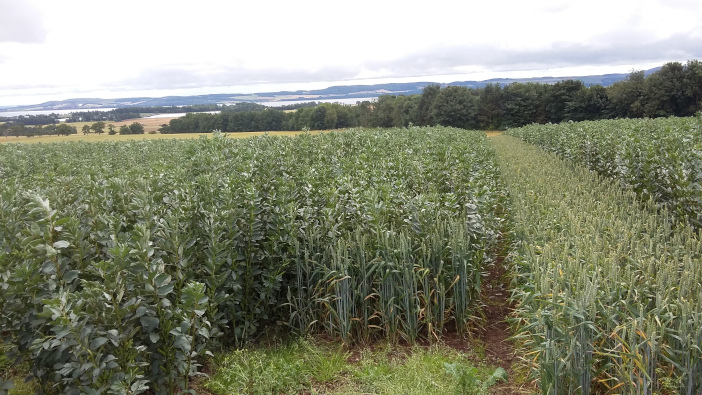Scientists at the James Hutton Institute are asking growers to participate in trials to measure legume-related benefits.
The legumES research project aims to provide evidence for the ecosystem benefits of legume crops, including peas, beans and clover, and monitor their impact.
The Institute states that legume cultivation could be a solution to reducing dependency on synthetic nitrogen fertilisers, lowering greenhouse gas emissions, improving soil health, and creating more diverse and resilient cropping systems.
Professor Pete Iannetta, of the James Hutton Institute, is co-ordinating the project through his joint appointment as a Senior Research Fellow at the University Catolica Portuguesa (Porto, Portugal).
Professor Iannetta said: “The legumES project looks beyond how legume crops such as peas, beans or clover may be included in crop rotations.
“It also examines how legume crops might mitigate the impacts that are already being experienced from climate change and biodiversity loss – including crop biodiversity loss – and their effects on nutritional security.”
Dr Alison Karley, who is leading the farm trials initiative, added: “[The trials] aim to quantify the environmental and socio-economic benefits of legumes from data gathered on-farm.
“We hope that working with farmers to run trials will provide much needed evidence of these benefits and help identify options for promoting the growing and consumption of legume products. The findings will hopefully inform policy and practice solutions.”
The four-year project was awarded 6.2m euros from the European Commission and the governments of Switzerland and the United Kingdom and will be carried out by a consortium of 22 partners across 12 countries.
Financial support and trial guidance will be provided to all those taking part. Farmers can register their interest by emailing legumES@hutton.ac.uk.



